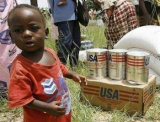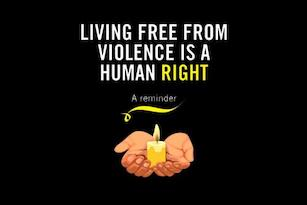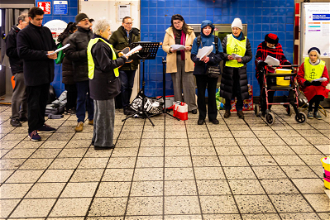Zimbabwe: 700,000 forced evictees ignored five years on

child at feeding station last summer
Amnesty International and the Coalition Against Forced Evictions are calling on the Zimbabwean government to take action to protect hundreds of thousands of people left to survive in substandard settlements five years after a program of forced mass evictions.
The government must provide adequate alternative accommodation or compensation to those left homeless and jobless, the two groups said.
"It is a scandal that five years on, victims are left to survive in plastic shacks without basic essential services. The needs of these victims are at risk of being forgotten because their voices are consistently ignored," said Amnesty International Zimbabwe's director Cousin Zilala.
On 18 May, 2005 the government of Zimbabwe began demolishing informal settlements across the country in an operation known as Murambatsvina (drive out trash). More than 700,000 people were left without a home or livelihood - or both.
Most were driven deeper into poverty by the forced evictions, a situation which has been further compounded by Zimbabwe's economic crisis.
Following widespread local and international condemnation of Operation Murambatsvina, the government embarked on a re-housing programme, known as Operation Garikai/Hlalani Kuhle later in 2005, which aimed at providing shelter for the victims and improving their living conditions.
However, according to a press statement by Amnesty International it was a dismal failure and now appears to have been abandoned.
Those affected by Operation Murambatsvina rapidly became invisible; forced to relocate to rural areas, absorbed into existing overcrowded urban housing or pushed into government designated settlements.
Those still in cities remain at risk of further forced evictions with no security of tenure. In 2009, Harare council attempted to remove some of the victims but was forced to reverse the decision amid protest from housing and human rights organisations.
Since its creation in February 2009, the unity government has done nothing to improve the plight of survivors of the forced evictions and their children who have been born in informal settlements. When informal traders have tried to resuscitate their trade they have been persistently obstructed by the authorities.
Women have been especially affected since they form the majority of informal market traders and in many cases are the primary providers, not only for their own children but also for other children orphaned by the AIDS pandemic.
Source: Catholic Information Service Africa





















